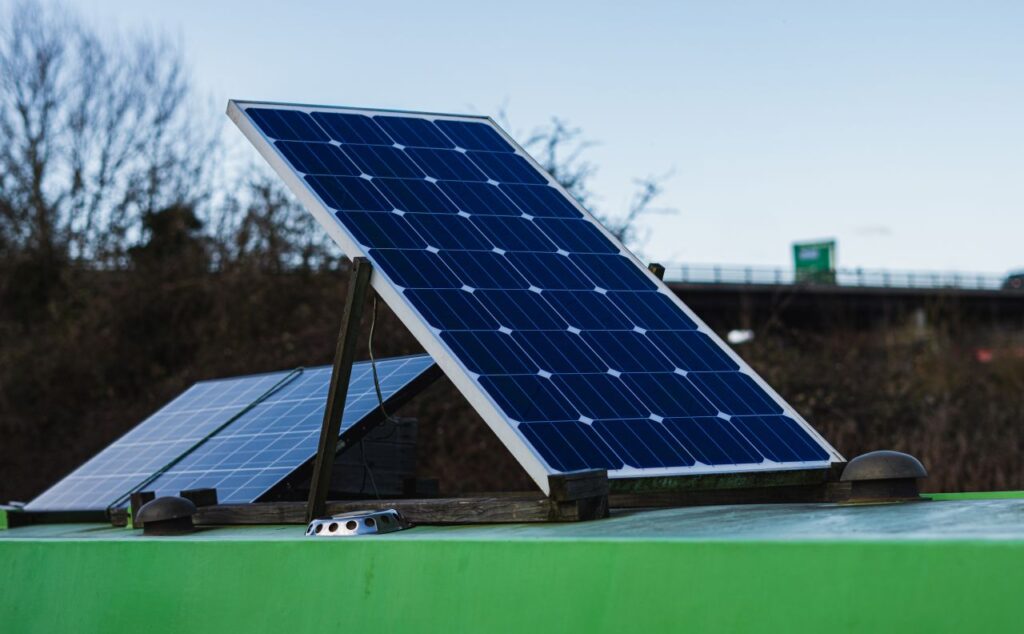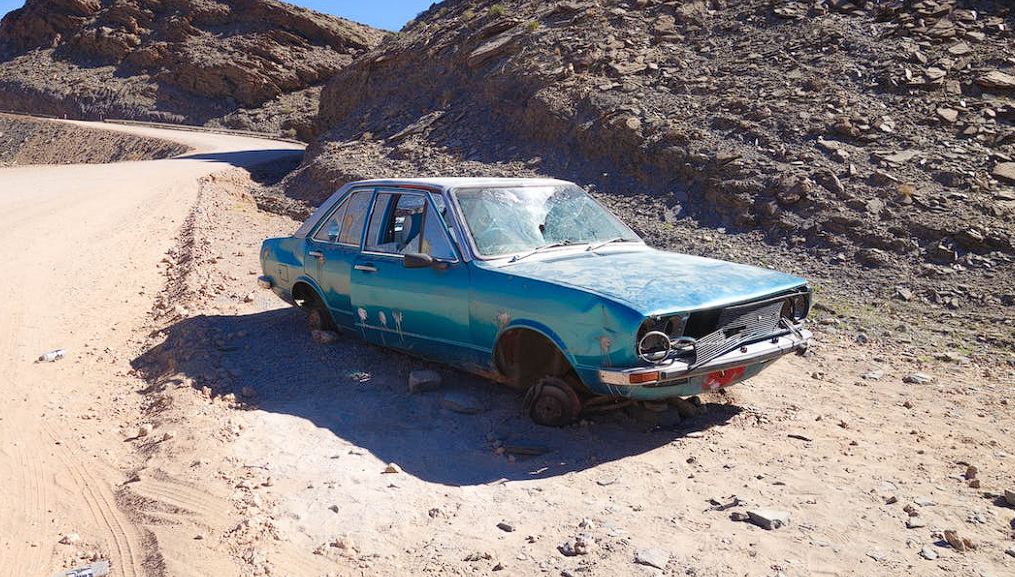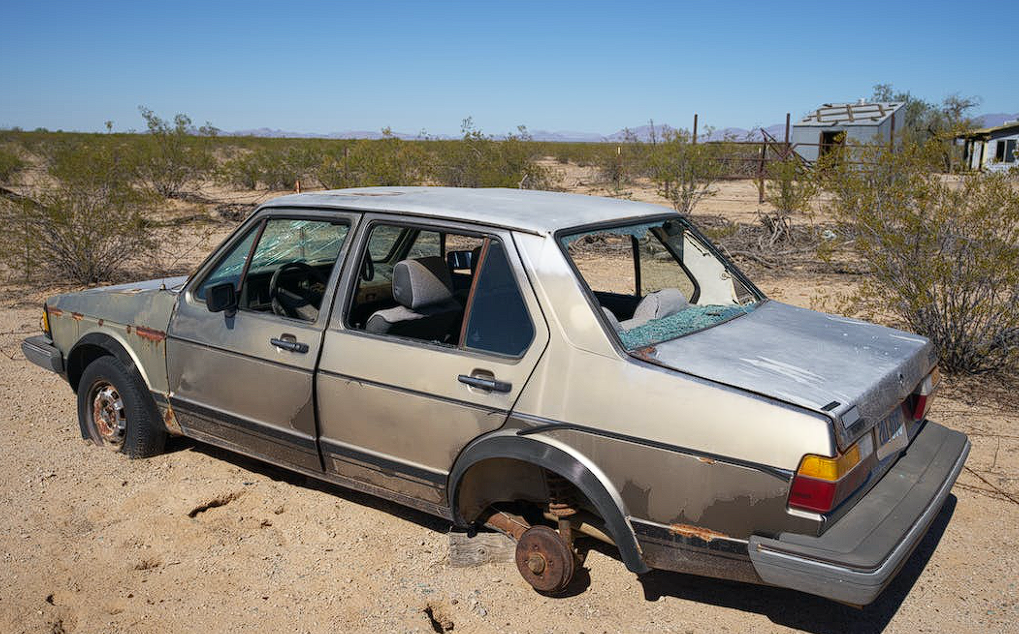Selling a junk car can be a hassle when you don't know what you're doing. Scammers are always looking for unsuspecting sellers, whether you want to make money from your old car or get rid of it. Need to get rid of a car that's been sitting in your driveway for too long? Old Cars Removed car removal services are just a phone call away.
Many people, however, fall for these scams and suffer financial and emotional consequences. We'll discuss some of the most common junk car buyer scams and advise you on how to avoid falling victim to them.
What Are The Most Typical Car Selling Scams?
There may be a lot of car sales scams out there, but experts have pointed out some of the most common ones to watch out for.
Buyer Car Selling Scams Have Been Confirmed.
After posting an ad for your car, you may fall victim to a common scam. For example, someone may call you and say they have many potential buyers for your car, and in exchange for their services, they need a $500 fee that will be refunded to you once the sale is finalised.
Since it's a scam, you want to avoid bringing a third party to help you close the deal. So instead, you're looking for cash buyers you can meet with in person immediately.
There is no such thing as a fee for generating interest among potential purchasers for the purpose of purchasing your automobile. So it's a scam if you see this or someone asks you to pay them to sell your car.
Many users appreciate the option of paid advertisements on sites like Facebook Marketplace. Moreover, these paid advertisements can be trusted because they originate from the marketplace you're using to sell your car.
Using Uncommon Payment Methods
Cash is king when it comes to automobile payments. However, con artists frequently employ unusual methods of payment when they "buy" your car and pier on your behalf.
They may propose using a third-party account to store the funds until they take possession of the vehicle. The possibility exists that the third-party account is theirs and that they will abandon your vehicle after taking it.
The value of one's car is another example. Then, suddenly, you hear back from someone willing to pay the full asking price and pay you more on top of that. This is a red flag and a sure sign of a scam, so beware!
A legitimate buyer will inquire about the car's history, make, and model. Then, instead of giving you more money, he may try to negotiate with you and lower the price. Finally, the majority of reliable customers will only pay cash or a deposit after seeing the car first.
As a result, you should only take out-of-the-ordinary payments, such as those made through PayPal accounts or third-party accounts, unless you've met the buyer in person.
No Car Title Transfer
Before you can sell your junk car, you'll need to cancel its registration and sign over the title to a salvage yard. Failure to do so may subject you to legal responsibility for any damage incurred before, during, or after the towing process.
Untrustworthy junk car vendors will say they'll take care of the paperwork after the sale but then surprise you with a charge for keeping your vehicle in their yard. That's why it's best to take care of the paperwork independently. Also, take the licence plates off the car before you leave.
They Do Not Handle All Of The Paperwork.
Ensure you legally transfer ownership of your junk car by completing the appropriate paperwork before selling it. If you don't make sure the paperwork is in order, the car will still be registered under your name, and you'll be responsible for paying any fines or fees associated with it (such as "junkyard storage fees"). This one-way cash-for-cars scam can continue to cost you money after the vehicle has been removed.
They Do Not Offer Free Car Towing.
If towing isn't part of the deal, that's another red flag that you might be dealing with a cash-for-cars scam. This is common practice because they can deduct the towing cost from their offer. Free towing is always included in the price offered by any reliable junk car buyer.
And if they suggest a towing service, you should avoid them. They're trying to make the deal more appealing to everyone else but you by involving a friend.
The Changing Price Quote
This is the most common type of junkyard con you'll encounter. It all begins with a phone call from the car's owner to the junk yard's quote line. The owner gives a detailed description of the vehicle's condition, and the business then offers them a price, which is usually very fair.
When you've settled on a price, the junkyard will tow your vehicle to the scrapyard, where the fun begins. The business then offers you a much lower price than originally agreed upon. Unfortunately, many car owners accept the lowball offer made after having their vehicle towed because they have no other choice.
Get multiple quotes from junk car buyers to avoid this situation. First, get a written, signed quote. Then, in the event that the junkyard tries to cheat you, you will have solid evidence to support your case.
They try to convince you that your vehicle is worthless.
Searching for "What are the signs of a scammer?" on Google will yield numerous results. This warning sign needs to be included. The junkyard has a better idea than you do of how much money can be made by selling a car, so this raises red flags. They will trick you into thinking your car is worthless to them by using industry jargon and phrases.
You can expect them to give you a long list of excuses for why they couldn't buy your junk car for that price. However, the most worn-out junk can still fetch a reasonable price. You can use the online calculator to determine your car's value and receive an instant online quote from us in less than 90 seconds.
Requesting Personal Information From You
If you're selling a car, you'll need the buyer's personal information to transfer the title and verify their employment.
It should never be considered normal for a buyer to request personal information from a seller, such as a person's Social Security number, credit card number, bank account information, or other similar information.
These are red flags for potential identity theft and illegal use of your personal information.
Freebies And Incentives Are Expensive.
Untrustworthy junk car buyers will resort to any means necessary to attract the attention of people looking to unload their junk vehicles. They'll offer bonuses like discounts, freebies, and gift certificates to encourage you to shop with them.
Accepting freebies is okay, but you should focus on what matters: will you get a fair price for your old car? Unfortunately, it's highly improbable that the value of these incentives will balance the money you'll lose to them.
Under any circumstances, do not allow the junkyard to purchase your vehicle for a sum that is lower than what it is actually worth.
The "We'll Send A Check To Your Mail" Lie
The fact that you are still waiting for your payment after having your car hauled to a junkyard should raise warning flags. There is a significant chance that the check will never be issued. Therefore, holding out for payment before parting with your junk car would be best.
And why would a company insist on accepting paper checks in this day and age of digital transactions? There is a risk of fraud when using that payment method. Always prefer doing business with junkyards that can pay in cash immediately.
When You Ask To See Their Licence, They Become Defensive.
One easy way to do this is to request to see the junkyard's licence. One of the best ways to know you're dealing with a legitimate scrap yard is to do business with licensed junkyards.
The best approach to prevent being the victim of a car scam is to simply ask the seller to produce their driver's licence before they make any financial commitments. A legitimate junkyard will be happy to show you their licence as proof that they are authorised to operate in your area. This is one of the best ways to protect yourself from being the victim of a car scam.
Tips To Avoid Car Selling Scams
You may have noticed a variety of car selling scams out there and that avoiding them can be challenging.
You are in luck since there are a few guidelines that you can adhere to in order to minimise the risk of falling victim to a con associated with the purchase or sale of a vehicle, and some of these guidelines are as follows:
Research The Buyer
You should investigate the buyer completely before selling your car to them. First, verify their identity by looking up their name and mailing address. You can also research them via the internet and social media.
Reviews to get a sense of their standing in the industry. If a potential buyer seems overly eager, or if they offer more than the asking price, you should proceed with caution.
Avoid Signing The Title Before Receiving Payment.
When you sign over the car's title, it immediately becomes the property of the buyer. Therefore, you should wait to sign the title until you've got the money to pay for it.
It is preferable to have immediate payment in cash to avoid the hassle of dealing with checks that are returned unpaid from your bank account after the transaction has already been finalised.
In that case, you may need to finalise the deal after meeting with the buyer at your bank to verify the check's validity.
Never Shipping Overseas
Professionals in the auto industry advise receiving full payment before making any overseas shipments.
While it may seem like a great idea at the time, selling a car internationally is fraught with potential pitfalls and scams we may need to be aware of, avoid dealing with overseas con artists by going with the buyer who offers the lowest price.
Go Somewhere Public To Meet.
Once again, you'll be interacting with people who are completely unfamiliar to you. Therefore, you should only meet them on your property and select a public location instead.
The area around a bank or a large retailer, where there are likely to be a lot of cameras and people videotaping, is one place that comes highly recommended. In the event that something unfortunate occurs, having these cameras around can be helpful for retrieving any necessary information.
Verify The Payment Method
When giving out the car, make sure the payment method is legitimate. Do not accept any checks or money orders due to the high risk of forgery. Verify the receipt and authenticity of the money if it was made via wire transfer or an online payment platform before handing the keys to the vehicle.
Select A Well-Known Payment Method.
Cash payments are the most secure and reliable method. If you still need to, you can take checks and money orders from buyers willing to meet you at the right bank to ensure the transaction goes smoothly.
It would be best if you never did business with anyone who requests payment through a non-standard method such as PayPal or a third-party account.
Be Wary Of Personal Information
Those trying to scam you might ask for sensitive information like your bank account or social security number. Only give out this data to a buyer if necessary. This is a red flag that the buyer is trying to pull a fast one.
Conclusion
Scammers are always looking for unsuspecting buyers who want to make money or get rid of their old car. Knowing the most frequent scams to look out for might help you avoid being a victim. It's Official: Car-Buying Scams Are a Thing. Paid ads on platforms like Facebook Marketplace can be relied upon. Unusual ways of laying out cash.
A red flag and a solid sign of a fraud is when the worth of one's car is brought up. The most critical information is that a serious buyer will ask about the automobile's background, manufacture, and model, will haggle with the seller, and will only pay in cash or a deposit after seeing the car in person.
In addition, unless they have met the customer in person, they should not accept payments made through PayPal or other third-party accounts. Not only is it usual practise to charge for towing services, but doing so would reduce the value of their provision. Finally, the most prevalent sort of junkyard swindle is the ever-changing price quote.
The most critical information is that you need several estimates from junk auto buyers to protect yourself from a lowball offer. A scammer's telltale moves, such asking for sensitive information from a seller, should raise red flags. Finally, rather of taking freebies and incentives, you should concentrate on receiving a fair price for your old car. Do not let the junkyard lowball you into selling your car for less than it is worth. In this digital age, you should not take paper checks.
Before you invest any money, be sure the junkyard has a valid licencing. Find out as much as you can about the potential buyer before selling your automobile to them, including their name, address, and online and social media presence. Keep an eye on buyer feedback, don't hand over the keys until you've been paid, and never send your vehicle overseas while selling it. Meeting the buyer in a public place is preferable because of the prevalence of cameras and bystanders who may record the encounter. Last but not least, while selling an automobile abroad, be wary of scams.
Make sure the payment method is legitimate, use a well-known payment option, and protect your personal data. Never accept a cheque or money order as a form of payment; cash is always prefered. Don't disclose a buyer private information unless absolutely necessary.
Content Summary
- Scammers target unsuspecting sellers of junk cars
- Many fall for scams when selling a car, causing financial and emotional consequences
- Watch out for third-party "buyer" fees when posting an ad for your car
- Paid advertisements on sites like Facebook Marketplace can be trusted
- Beware of uncommon payment methods, like using a third-party account to store funds
- Beware of anyone willing to pay full asking price and more
- Legitimate buyers will ask about the car's history, make, and model, and may try to negotiate the price
- Reliable customers will only pay cash or a deposit after seeing the car first
- Don't take out-of-the-ordinary payments, such as PayPal or third-party accounts, unless you've met the buyer in person
- Cancel registration and sign over the title to a salvage yard before selling a junk car
- Beware of untrustworthy junk car vendors who say they'll handle the paperwork but then charge for keeping your vehicle in their yard
- Make sure paperwork is in order, or you may be responsible for any fines or fees associated with the vehicle
- Free towing is always included in the price offered by reliable junk car buyers
- Avoid sellers who involve a friend for towing services
- Beware of changing price quotes - get multiple quotes and a written, signed quote to support your case
- Scammers may try to convince you that your vehicle is worthless using industry jargon and phrases
- Don't fall for excuses for why a junk car can't be bought for a reasonable price
- Research and compare prices to avoid selling to a scammer
- Beware of salvage yards that use different tactics to lower their initial quote
- Watch out for false "we buy any car" promises
- Avoid buyers who make unrealistic offers, such as offering more than the car is worth
- Don't trust buyers who refuse to disclose their full name or contact information
- Beware of "flippers" who pretend to be buyers, only to resell the car at a profit
- Be careful when selling to private buyers who offer to pay in installments
- Don't release the car or the title without receiving full payment
- Beware of buyers who claim they have a cashier's check and ask for the title before picking up the car
- Check with your bank to verify the check is valid before completing the sale
- Don't let anyone test drive the car without you present
- Be wary of buyers who pressure you to make a quick decision
- Be careful of scammers who offer to take care of the title transfer for you but then disappear with the car
- Make sure to keep records of all correspondence and documentation related to the sale.
Frequently Asked Questions
If you suspect you've been scammed while trying to sell your junk car, you should immediately stop all communication with the suspected scammer and gather any evidence of the scam. You should also report the scam to the relevant authorities, such as the local police.
Additionally, provide any personal or financial information. Finally, you should monitor your accounts for any unusual activity, consider changing your passwords, and contact your bank or credit card company to alert them to potential fraud.
When trying to sell your junk car through a website or app, some online scams to watch out for include fake payment scams, where a scammer sends you a fake payment confirmation or a fraudulent check, and phishing scams, where a scammer tries to obtain your personal or financial information by posing as a legitimate buyer. It would be best if you also were wary of offers that seem too good or requested that you pay for shipping or other fees upfront.
Finally, always research the buyer and the platform thoroughly before agreeing to a sale, and never share sensitive information unless you are certain the transaction is legitimate.
To avoid being scammed by a "middleman" when selling your junk car, it's important to research and verify the legitimacy of the middleman and any associated companies. Look for reviews and ratings from previous customers, and never agree to pay any fees or expenses upfront.
Additionally, make sure that the middleman provides clear and transparent communication throughout the entire process and that they clearly understand the value of your junk car. Finally, always be cautious of unsolicited offers, and consider seeking out a trusted and reputable junk car buyer or removal service instead.
When selling your junk car to avoid scams, you should provide the buyer with the vehicle's title or proof of ownership and any relevant maintenance and repair records. You may also need to provide a bill of sale and a release of liability form to transfer ownership of the vehicle to the buyer.
These documents help verify that you are the vehicle's rightful owner and protect you from potential legal issues that may arise after the sale. Be wary of buyers who do not request these documents, as they may be attempting to scam you or engage in illegal activities with the vehicle.
If you receive a suspicious email or phone call from a potential junk car buyer, do not respond or provide any personal information. Instead, research the buyer's information and the contact details provided to verify their legitimacy. You can also contact the platform or website where the buyer contacted you to report suspicious activity.
In addition, it's important to never click on links or download attachments from suspicious emails, as these may contain malware or viruses that can compromise your personal information. Finally, trust your instincts; if something seems off or too good to be true, it's better to err on the side of caution and avoid the potential scam.
















